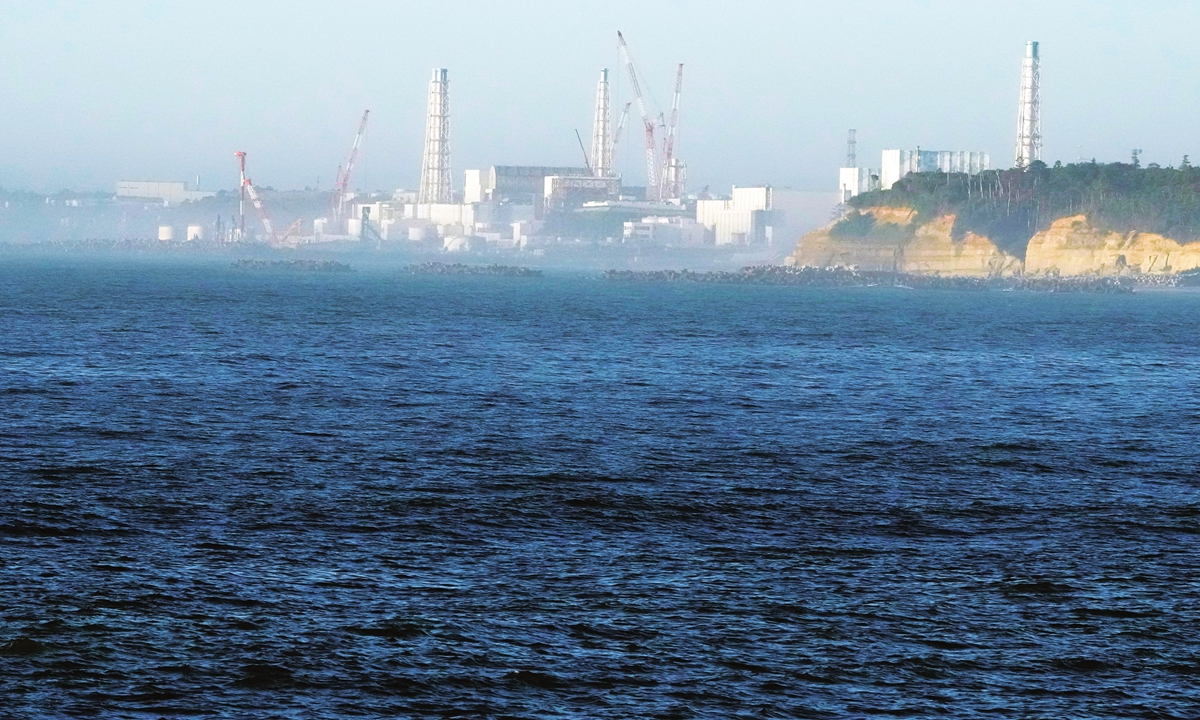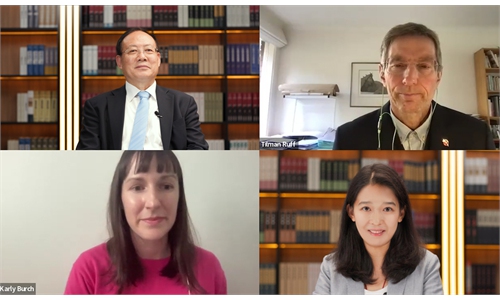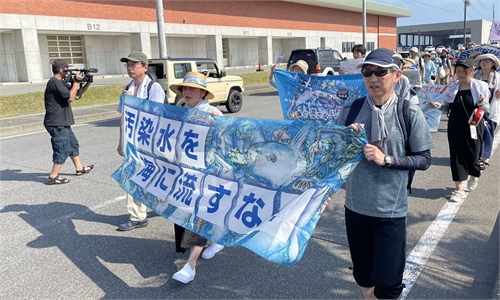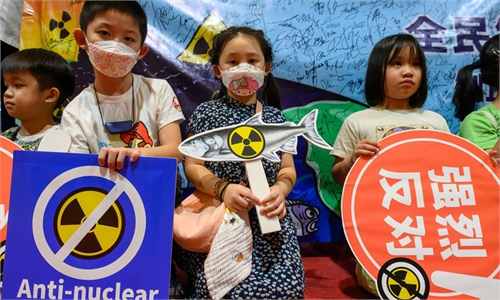Japan pays high price for continued nuclear-contaminated water dumping as seafood exports plunge

A view of the Fukushima Daiichi nuclear power plant, damaged by earthquake and tsunami in 2011, nearby Ukedo fishing port in Namie town, on August 24, 2023. Photo: VCG
Chinese experts said on Saturday that Japan is paying a high economic price for its continued dumping of Fukushima nuclear-contaminated water to the sea, which continued on Thursday, with long-lasting damage to the fishery and other related industries.
Agricultural exports play a major part in Japan's total exports, and Japan's seafood sales to China have plunged lately.
Aquatic exports from Japan to the Chinese mainland in August fell for a second month, plunging 65.7 percent year-on-year to 3.6 billion yen ($24.2 million), due to China's strengthened detection of radioactive material in July and a ban on Japanese aquatic imports since August, Kyodo News reported on Friday.
The Japanese fishing sector has been hit hard by Tokyo's dumping of radioactive water, especially to its reputation, Chen Zilei, director of the Research Center for Japanese Economics at the Shanghai University of International Business and Economics, told the Global Times on Saturday, and the impact will last for a long time.
The long-term negative impact will extend to other associated sectors which may last for a long time, said Bao Jianyun, director of the Center for International Political Economy Studies at Renmin University of China.
Bao told the Global Times on Saturday that Japan's waste water dumping may also affect overall bilateral trade, especially since the two nations are important trading partners and highly interdependent in economic structure.
The report from Kyodo News said that China's ban on Japanese seafood will further dampen Japan's exports in September, with local scallops and sea cucumbers already experiencing a considerable decline. Exports of Japanese scallops plummeted to 1.6 billion yen, a decline of 71.3 percent year-on-year.
The continued contaminated water releases will hit Japan's domestic and international demand for aquatic products, Chen noted.
In August, Japan's total exports of agricultural, forestry and fishery products and foodstuffs fell by 7.9 percent year-on-year to 103.4 billion yen, while seafood exports decreased by 8.2 percent to 28.8 billion yen, according to Kyodo News.
Japan's first round of waste water dumping sparked rising concerns among Chinese consumers, with many starting to avoid Japanese restaurants. A Beijing-based white-collar worker told the Global Times on Saturday that she had not been to any Japanese restaurants since the dumping.
China has repeatedly criticized Japan's reckless decision. A spokesperson from the Chinese Embassy in Japan expressed strong dissatisfaction on Friday about the second round of dumping, urging the Japanese government to dispose of the nuclear-contaminated water in a responsible manner by establishing a long-term and effective international monitoring system with the effective participation of the stakeholders.
On Wednesday, Japan's Agriculture and Fishery Minister Ichiro Miyashita said that the nation hopes to resolve China's ban on its seafood within the WTO framework, the Asahi Shimbun reported on Thursday.
"We are undecided whether to file a complaint ... to the WTO immediately. At any rate, we hope to find a resolution within the WTO framework," he said.
Chen said that it will take a lot of time and effort for Japan to actually file a WTO complaint, while Tokyo still hopes to launch bilateral negotiations to resolve the issue.



